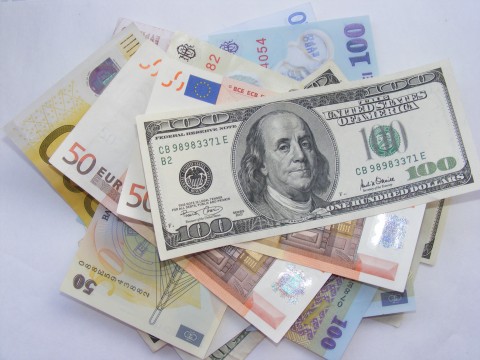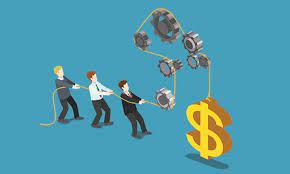What Is a Fixed Exchange Rate
Feb 12, 2024 By Susan Kelly
A central bank implements a regime known as fixed exchange rate. It is characterized by linking a country's official currency exchange rate to price of gold or another nation's currency. A fixed exchange rate system aims to maintain a currency's value within a relatively limited range.
Understanding Fixed Exchange Rate
Both exporters and importers benefit from the increased certainty of fixed rates. The government can keep a tight grip on inflation with the assistance of fixed interest rates, which, in the long run, helps to keep interest rates low and encourages both commerce and investment.
The world's most important industrialized countries have historically operated under floating exchange rate systems. These systems allow the value of each country's currency to be determined by current rates on the foreign exchange market (forex). While emerging economies have used fixed-rate systems since the beginning of the 1970s, these countries have started using this practice.
The Beginnings of the Monetary Union
As a step toward monetary unification and the eventual launch of the euro, ERM was founded in 1979. This was done in preparation for these two events. Member states, such as Germany, France, the Netherlands, Belgium, and Italy, have committed to keeping their exchange rates within a range of plus or minus 2.25 percentage points of a central point. After joining in October 1990 at an unreasonably high conversion rate, the United Kingdom was compelled to withdraw from the currency two years later.
On January 1, 1999, the countries that were founding members of the euro changed from their native currencies to the euro using the ERM central rate that was in effect at the time. At the same time, the currencies of countries interested in joining the eurozone trade in a controlled float known as ERM II, the euro itself is freely traded against the other major currencies.
Disadvantages
Using a fixed-rate system is common in developing countries since it helps curb speculation and provides a stable system. Importers, exporters, and investors can plan without being concerned about fluctuations in currency value when the system is stable.
The capacity of a central bank to alter interest rates in response to changing economic conditions is hindered by a system with fixed interest rates. In addition, a fixed-rate system precludes market changes that normally occur when a currency is either overvalued or undervalued. A significant pool of reserves, which can prop up the currency's value whenever it comes under sustained selling pressure, is essential to operate a system with a fixed interest rate efficiently.
The creation of unofficial, parallel, or dual exchange rate is another possibility if the official exchange rate is unrealistic. The central bank can lose hard cash if there is a significant spread between the official and unofficial exchange rates. This may result in currency shortages and recurrent major devaluations. These may be more detrimental to an economy than the routine adjustments made under a floating exchange rate system.

Floating Rate vs. Fixed Rate
The exchange rate refers to the rate at which one currency may be exchanged for another and is the focal point of all trading activity in the currency markets. To put it another way, it is the value of another nation's currency about the value of your own country's currency.
If you travel to a different nation, you must "purchase" that country's money. The exchange rate is the price at which you may purchase that currency, and it functions in the same way as the price of any other asset. If you are going to Egypt, for instance, and the exchange rate for U.S. dollars is 1:5.5 Egyptian pounds, this indicates that you will be able to purchase five and a half Egyptian pounds for every dollar you bring with you from the United States.
Because the exchange rate has to keep the intrinsic worth of one currency against another, identical assets should theoretically sell for the same price in each of the nations in which they are offered for sale. In the case of fixed exchange rates, two currencies will always be exchanged at the same price. On the other hand, in the case of floating exchange rates, the prices between each currency are subject to fluctuation based on the many market circumstances, most significantly supply and demand.
Variations on Fixed Rates
Some countries may choose to have a "floating" or "crawling" peg, which means that the government regularly reevaluates the value of the peg and then adjusts the peg rate appropriately. This kind of peg is also known as a "crawling peg." This often results in a decrease in value, but to prevent panic in the market, it is managed.

This strategy is often used when transitioning from a fixed to a floating exchange rate system. It enables the government to "save face" by preventing it from being compelled to devalue the currency amid an unmanageable crisis.





